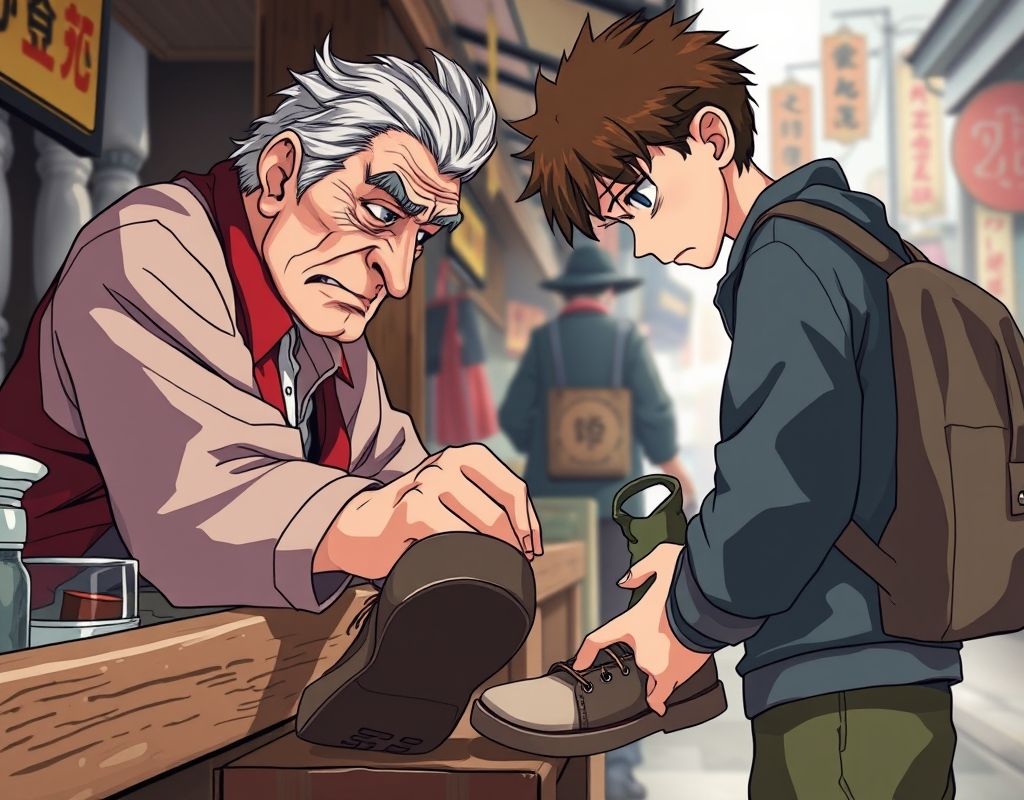
The 'Look at Your Feet' Trick: 足元を見る
😨 When you're in a weak position, be careful not to get your 'feet looked at'!
Have you ever been in a tight spot? For example, losing your keys and having to call a locksmith at night, or needing to sell an item urgently...
In moments like these, it's very easy for the other party to 「足元を見る」(ashimoto wo miru).
👣 Literal vs. Figurative Meaning
- Literally: To look at someone's feet.
- Figuratively: To exploit someone's weakness, difficult situation, or lack of knowledge for one's own gain. This originates from old inns where the owner would look at a traveler's worn-out straw sandals (草鞋 - waraji) to know they were exhausted and couldn't go elsewhere, then charge them a higher price for a room.
This is a very negative expression, describing a cunning person who sizes up your weakness and forces you into a disadvantageous deal.
💡 Let's look at some examples!
Imagine you lost your keys and called a locksmith. Seeing how anxious you are, they quote an exorbitant price.
鍵をなくして困っていると、業者に足元を見られて、相場の倍の料金を請求された。 (Kagi o nakushite komatte iru to, gyousha ni ashimoto o mirarete, souba no bai no ryoukin o seikyuu sareta.) → When I was in trouble after losing my keys, the locksmith took advantage of my situation and charged me double the market rate.
Or when you need to sell your car in a hurry:
急いで車を売りたいと言ったら、足元を見られてかなり安く買い叩かれた。 (Isoide kuruma o uritai to ittara, ashimoto o mirarete kanari yasuku kaitatakareta.) → When I said I wanted to sell my car quickly, they exploited my weakness and lowballed me significantly.
🤔 How to avoid it?
When you find yourself in a difficult situation, try to stay calm and not reveal your desperation. If possible, always get quotes from multiple sources.
Knowing this phrase not only deepens your understanding of Japanese but also serves as a reminder to always be cautious in any transaction! 🤝
Thẻ liên quan:
Lan tỏa kiến thức
Chia sẻ những điều hay ho với bạn bè